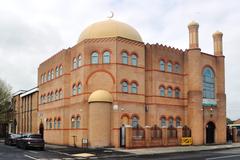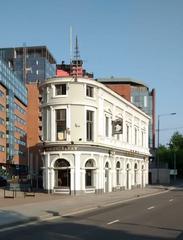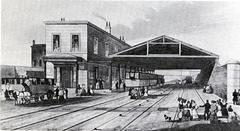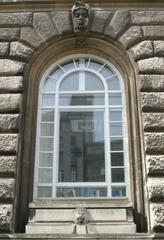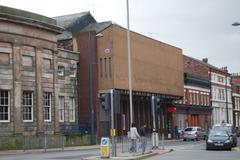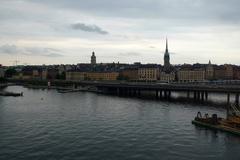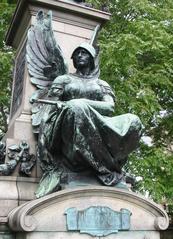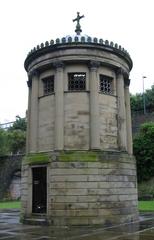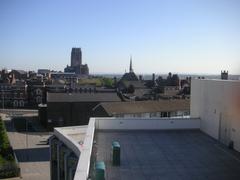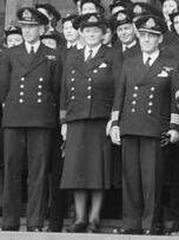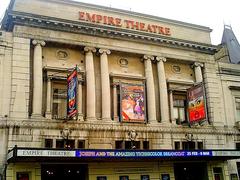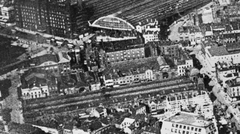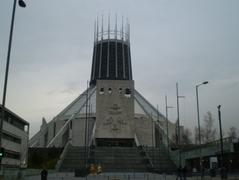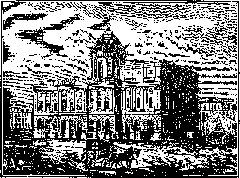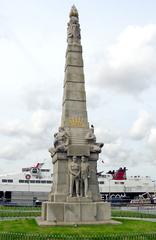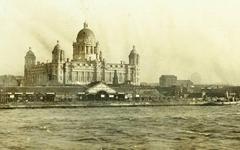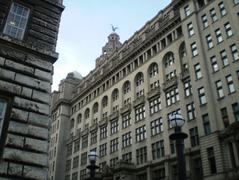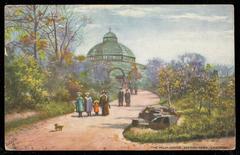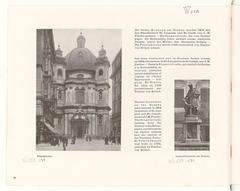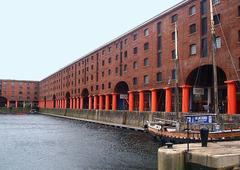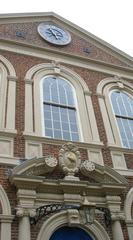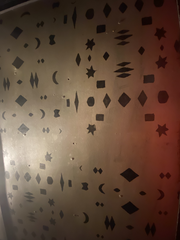International Slavery Museum Liverpool: Visiting Hours, Tickets, and Historical Significance
Date: 03/07/2025
Introduction
The International Slavery Museum (ISM) in Liverpool stands as a powerful testament to the city’s role in the transatlantic slave trade and its enduring legacy. Located at the historic Royal Albert Dock, the museum is dedicated to exploring the history, impact, and contemporary relevance of slavery and racism. Since its opening in 2007—marking the bicentenary of Britain’s abolition of the slave trade—the ISM has provided an essential space for education, reflection, and dialogue on social justice and human rights. With thoughtfully curated galleries, interactive exhibitions, and a commitment to accessibility, the museum invites visitors to confront difficult histories while promoting learning and community engagement.
The ISM is currently undergoing a major redevelopment as part of the National Museums Liverpool’s Waterfront Transformation Project, with a planned reopening in 2028. This guide compiles everything you need to know about visiting hours, ticketing, accessibility, exhibitions, the redevelopment, and how to make the most of your experience—now and in the future. For the latest updates, always refer to the official International Slavery Museum website.
Quick Contents
- Introduction
- Historical Significance of ISM and Liverpool
- Museum Hours and Ticketing
- Accessibility and Visitor Facilities
- How to Get There and Nearby Attractions
- Exhibitions and Educational Programs
- Current Redevelopment and Future Plans
- FAQs
- Plan Your Visit & Stay Connected
- Sources
Historical Significance of the International Slavery Museum and Liverpool
Liverpool was the leading British port involved in the transatlantic slave trade from the mid-18th to early 19th centuries, with over one million enslaved Africans transported on ships departing from the city (Liverpool Echo). The ISM was established to confront this history, educate the public, and foster dialogue about slavery’s legacies—past and present. Its exhibitions illuminate West African cultures before enslavement, the brutal realities of the Middle Passage, resistance, and the ongoing struggles for racial equality. The museum also highlights local and global achievements of the African diaspora.
Museum Hours and Ticketing
-
Standard Opening Hours:
10:00 AM – 5:00 PM daily (last admission 4:30 PM).
Closed on major public holidays.
Always check the official website for up-to-date hours, especially during redevelopment. -
Tickets and Admission:
Entry is free of charge; donations are welcomed. Some special exhibitions or events may require paid tickets, available for purchase online or at the museum. -
Redevelopment Closure:
The museum is closed from early 2025 until the planned reopening in 2028 as part of the Waterfront Transformation Project (Insider Media).
Accessibility and Visitor Facilities
The ISM is committed to accessibility for all visitors:
- Wheelchair access: Lifts, ramps, and accessible restrooms throughout.
- Assistance dogs: Welcome.
- Hearing and visual support: Hearing loops, audio guides, and accessible signage.
- Facilities: Café, gift shop, free Wi-Fi, and seating areas for reflection.
After redevelopment, expanded facilities—including step-free access, multilingual resources, and sensory-friendly programming—will ensure an inclusive experience.
How to Get There and Nearby Attractions
-
Location:
Royal Albert Dock, Liverpool, on the third floor of the Merseyside Maritime Museum. -
Public Transport:
- Train: Liverpool Lime Street Station (15-minute walk).
- Bus: Multiple routes stop near Albert Dock.
- Parking: Paid parking at Albert Dock car parks, including accessible spaces.
-
Nearby Liverpool Historical Sites:
- Merseyside Maritime Museum
- Tate Liverpool
- Museum of Liverpool
- The Beatles Story Museum
The Royal Albert Dock offers stunning waterfront views and is an ideal base for exploring Liverpool’s rich cultural heritage.
Exhibitions and Educational Programs
Permanent Galleries
- Life in West Africa: Showcases Africa’s diverse cultures before enslavement.
- Enslavement and the Middle Passage: Examines the horrors of the slave trade, featuring original artifacts, ship logs, and multimedia testimonies (Lonely Planet).
- Legacy: Explores the enduring impact of slavery on modern society and the achievements of the African diaspora.
Temporary Exhibitions and Special Events
- Regularly changing exhibitions focus on themes such as social justice, human rights, and contemporary forms of slavery.
- The museum holds lectures, workshops, commemorative events (e.g., Anti-Slavery Day), and family-friendly activities (The Guide Liverpool).
Educational Engagement
- Guided Tours: Led by expert staff, available for groups and individuals (book in advance).
- Workshops & Talks: For schools, families, and adults, including storytelling and interactive sessions.
- Academic Partnerships: Collaborations with the University of Liverpool’s Centre for the Study of International Slavery (University of Liverpool Blog).
Digital Resources
During closure, online exhibitions, virtual tours, and educational materials remain available on the ISM website.
Current Redevelopment and Future Plans
The Waterfront Transformation Project
The ISM is undergoing a £58 million transformation, which includes:
- New entrance at the Dr Martin Luther King Jr Building, providing a dedicated gateway and enhanced visitor facilities (Donald Insall Associates).
- Iron and glass bridge connecting the new entrance to the galleries, symbolizing links between past and present (BBC News).
- Expanded galleries and community spaces, including the National Centre for Teaching Black History and new event spaces.
- Restorative justice focus and greater representation of Black histories.
- Enhanced accessibility: Step-free access, sensory-friendly programming, and multilingual support.
Funding:
Significant investment from the UK government and National Lottery Heritage Fund underlines the museum’s national and international importance (Liverpool Echo).
Timeline:
Museum closed from 2025 to 2028. Stay updated via the official website.
Frequently Asked Questions (FAQ)
Q: When will the International Slavery Museum reopen?
A: The ISM is due to reopen in 2028 following redevelopment.
Q: How much are tickets?
A: General admission is free; some special exhibitions or tours may require paid tickets.
Q: Is the museum accessible for wheelchair users?
A: Yes, and redevelopment will further improve accessibility.
Q: Are guided tours available?
A: Yes, guided tours can be booked in advance. Check the website for updates.
Q: Can I visit the museum during redevelopment?
A: The physical museum is closed, but digital resources and virtual exhibitions are available online.
Q: How do I get to the museum?
A: Located at Royal Albert Dock, accessible via Liverpool Lime Street Station, James Street Merseyrail, and nearby bus routes.
Q: Are there family activities?
A: Yes, including storytelling, crafts, and interactive exhibits.
Plan Your Visit & Stay Connected
- Check the official ISM website for reopening updates, ticketing, and programming.
- Explore digital collections and virtual tours during the closure.
- Download the Audiala app for guided audio tours and cultural content across Liverpool’s museums.
- Follow the ISM and National Museums Liverpool on social media for the latest news, events, and educational resources.
Sources
- Liverpool Museums – International Slavery Museum
- Liverpool Echo: Anti-Slavery Day and Liverpool’s Slave Trade History
- TravelSetu: International Slavery Museum Guide
- BBC News: ISM Redevelopment
- Donald Insall Associates: ISM Redevelopment Plans
- Insider Media: Liverpool Museums Redevelopment
- The Guide Liverpool: Libation Ceremony at ISM
- University of Liverpool Blog: Perceptions of the Slavery Museum
- Lonely Planet: ISM Attraction Page
The International Slavery Museum is a cornerstone of Liverpool’s cultural and historical landscape, inviting all to reflect, learn, and engage with the legacies of transatlantic slavery. As the museum prepares for a new era, visitors can look forward to an even more impactful and accessible experience—both in person and online. Plan your future visit, stay connected, and contribute to the ongoing journey of understanding and social change.


